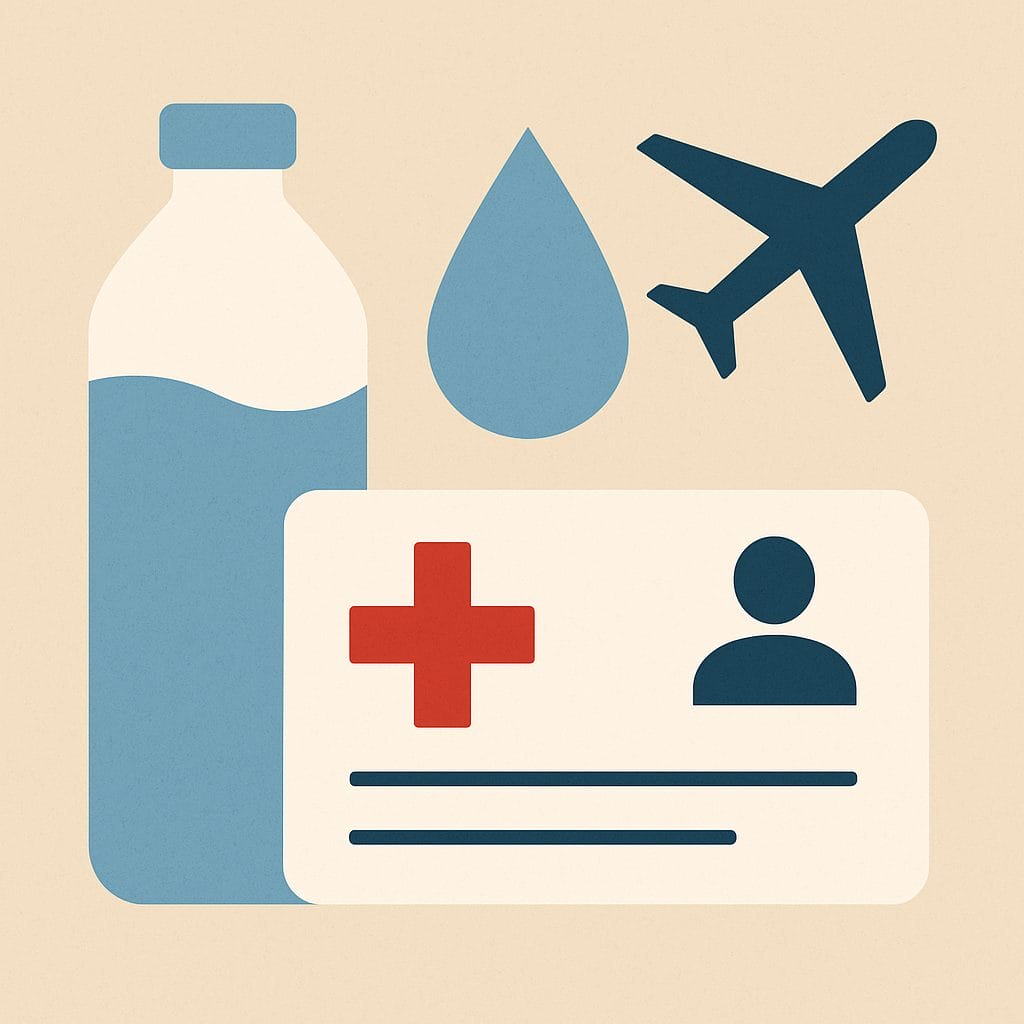This summer, more than 300 million people will pass through EU airports. Many will be hot, tired, and thirsty. But for a growing number of travellers, staying hydrated isn’t about comfort; it’s about staying out of hospital.
“We’ve built scanners that can tell the difference between shampoo and explosives. But we still don’t have a card that says, ‘This person needs to carry water.’”
In 2023, many EU airports began rolling out C3 scanners. The kind that let you keep your liquids and laptop in your bag. The 100ml liquid rule was on its way out.
Then, in September 2024, the European Commission reinstated the limit, citing technical concerns. The scanners stayed. The rule came back. And with it, a serious accessibility gap.
After bariatric surgery, the stomach can only hold a few sips at a time. Patients must drink constantly to avoid dehydration, fatigue, or even fainting. Clinical guidelines from the EAES, IFSO-EC, and EASO are clear: hydration is a lifelong medical requirement.
“Dehydration is the number one reason bariatric patients end up back in hospital. And it’s entirely preventable.”
This isn’t just about bariatric patients. People with diabetes, dysautonomia, kidney disease, or adrenal insufficiency also need reliable access to fluids, especially during travel, and especially in a summer where temperatures are topping 46°C across southern Europe.
EU aviation rules do allow passengers to carry liquids over 100ml if they’re medically necessary. But there’s no standard form, no EU-wide card, and no guarantee that airport staff will recognize the need; especially if the liquid is just water.
Meanwhile, airlines are legally required to provide drinking water on board. But that doesn’t help when you’re stuck in a security queue for 45 minutes, already dehydrated.
The Hidden Disabilities Sunflower Lanyard is now recognized at over 250 airports. It’s a wonderful tool for signalling that you might need extra time or support. But it’s not a medical document. It doesn’t override security rules. And it doesn’t explain why you’re carrying a bottle of glucose solution or electrolyte water.
“The lanyard says, ‘Please be kind.’ A medical ID card would say, ‘This is necessary.’”
What’s missing is a voluntary, EU-wide medical ID card; something that says, clearly and respectfully, “This person has a legitimate medical need to carry fluids.”
It wouldn’t need to grant special privileges. Just clarity. Consistency. And a little dignity.
✅ Introduce a standardized medical ID card for hydration-dependent conditions.
✅ Restore full functionality of C3 scanners as soon as technically feasible.
✅ Train airport staff to recognize and accommodate hidden medical needs.
✅ Include hydration-dependent conditions in the EU Disability Rights Strategy and European Disability Card framework.
We’ve invested in smart scanners. We’ve committed to disability inclusion. We’re facing hotter summers and busier airports than ever before.
This is a small fix with a big impact. And for the millions of Europeans who live with hydration-dependent conditions, it could mean the difference between a safe journey and a medical emergency.
“A bottle of water shouldn’t be a barrier. It should be a basic right.”

